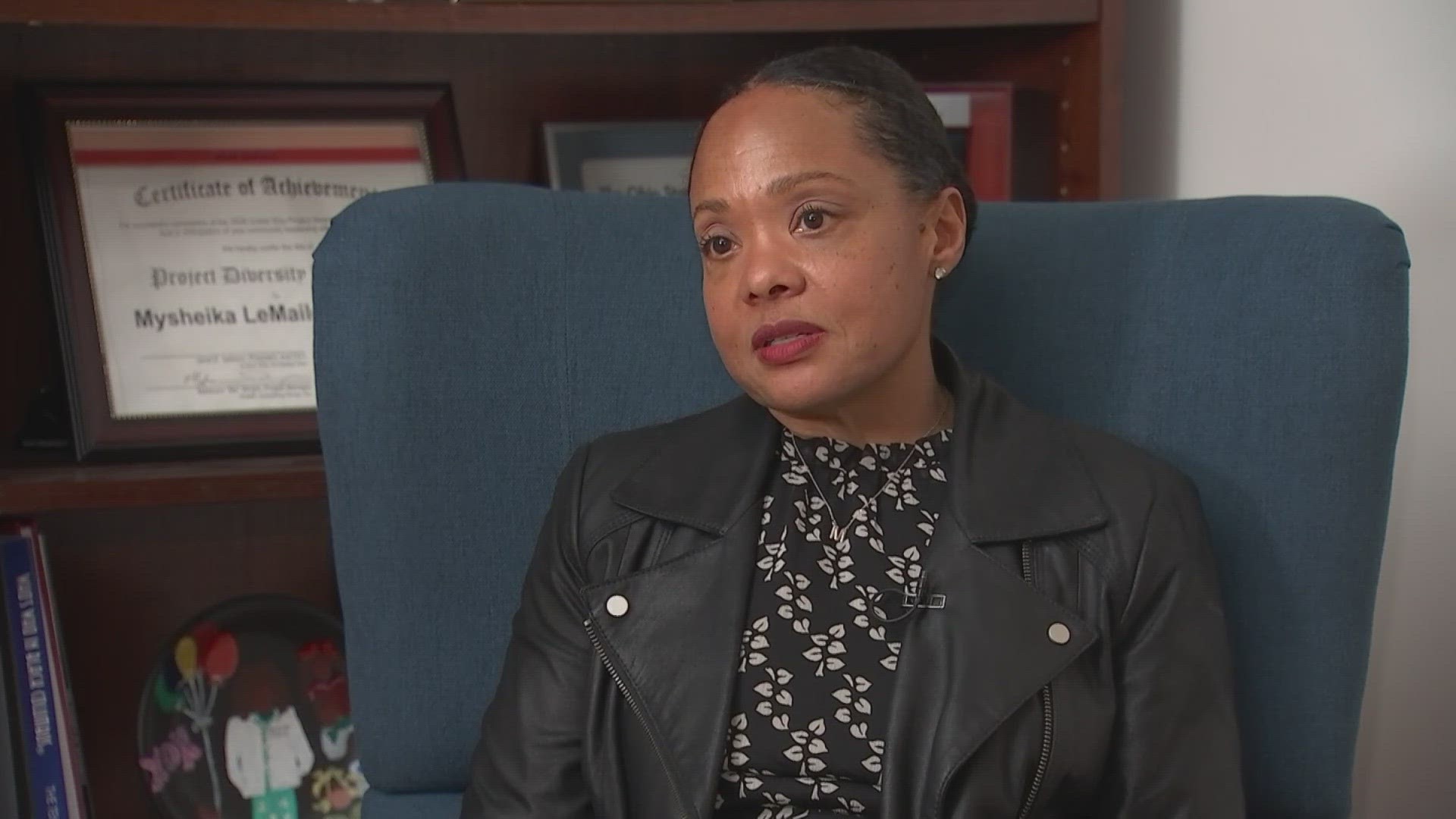COLUMBUS, Ohio — Dr. Mysheika Roberts was in her medical school residency when she received a life-changing diagnosis.
"Most people, if not everyone, has no idea that I'm living with this disease," she added.
Today, Roberts is the health commissioner for the city of Columbus, but in 1999 she was a resident in an intensive care unit. She was at work when her vision went blurry. She was diagnosed with optic neuritis, but doctors couldn't confirm the cause.
"Everything came back inconclusive," she said.
With treatment, Roberts' vision returned to normal – until six months later, when she woke up and had double vision.
"At that point they were like you could have multiple sclerosis, but we don't know," she said. "Both of my parents are in healthcare, and they were like not until we can figure out what this is are we doing to accept that diagnosis."
Multiple sclerosis – or MS – is a disease that affects the central nervous system. It causes damage to myelin, which protects nerves in the brain, and disrupts the flow of information to the body. The result is a variety of unpredictable symptoms, like numbness, tingling, memory problems and paralysis, according to the National MS Society.
Roberts' doctors advised her to wait another six months and then to get an MRI to test her for MS. She followed the doctor's orders and got the test. She decided not to look at her results until two weeks later when she woke up one morning feeling like she was walking on rocks.
"They pulled me in a room, and they read the results," Roberts said. "At that point my MRI showed definitive signs and symptoms of MS."
The diagnosis was terrifying for Roberts' family. One of her relatives was diagnosed with MS before there were treatments available. He was severely handicapped and died from the disease.
"When I got diagnosed, that's the only thing my family knew about MS," she said. "They were terrified."
Roberts started her treatment by giving herself daily injections of Copaxone to manage her symptoms. More MS treatments were developed over time, and now she gets an infusion every six months. It's been 24 years since she was diagnosed, and Roberts said she's only experienced a handful of flareups and has no handicaps from the disease.
"This can be a treatable disease. It can be a manageable disease, particularly if caught early and if treated right," Robert said.
Roberts shared her story publicly to encourage others, particularly African American people, to advocate for their health. Research from the National Multiple Sclerosis Society reveals that more Black people are diagnosed with the disease than previously thought and that they are underrepresented in research. It also shows that Black people who are diagnosed with MS may face a more aggressive disease progression and greater disability.
"African Americans, at least the ones I've spoke to and witnessed with this disease, are just so afraid of this label, of this diagnosis and what it could mean, and they don't want to trust the science," Roberts said.
"Science is what has me sitting here talking to you today without any handicaps," she added. "It's science. It's all science."

